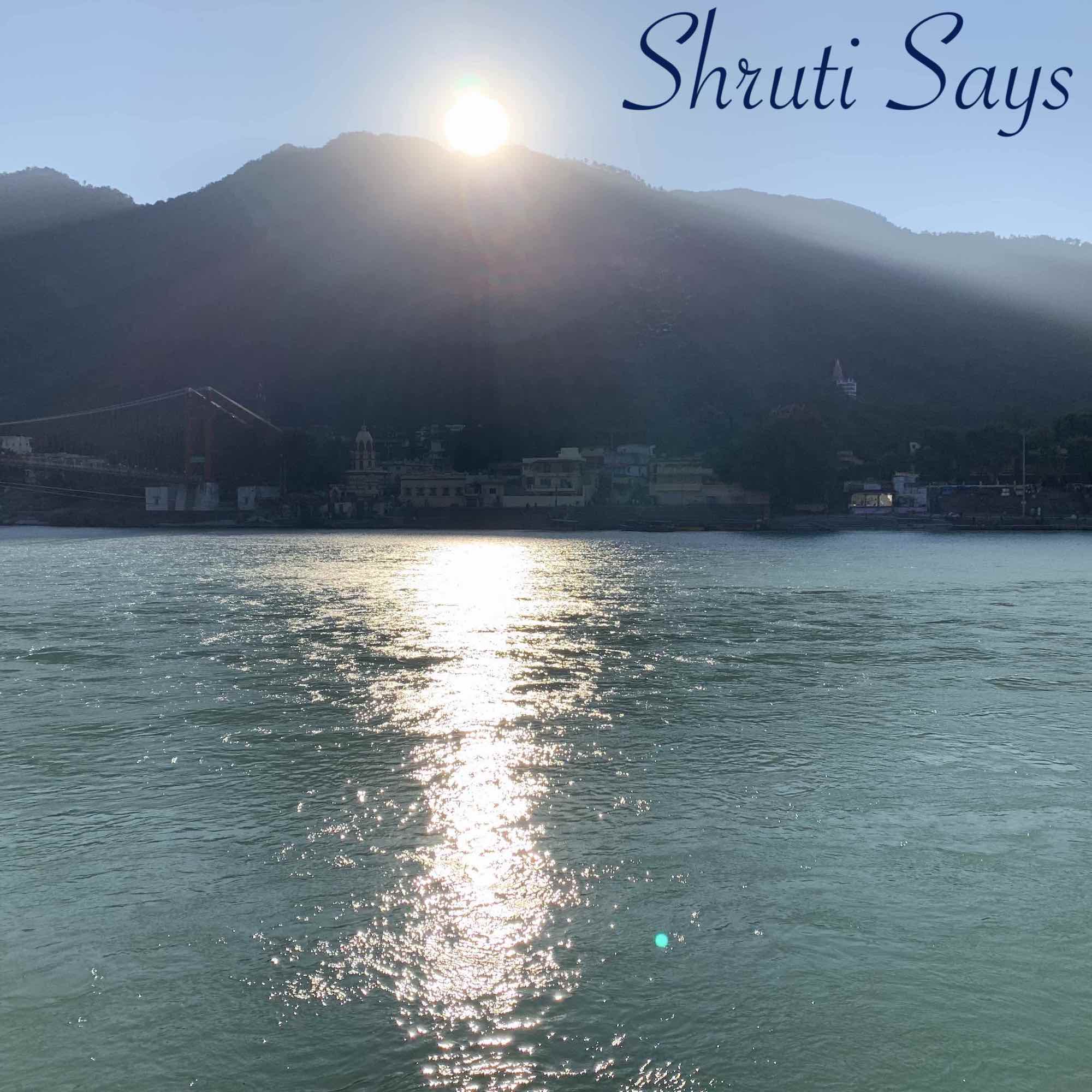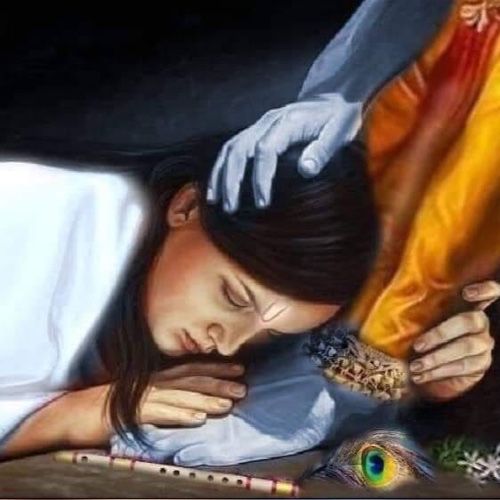Bhagwat Session 8
Shrimad Bhagavata Mahapurana
Synopsis of the Eight Session
Bhagavata Dwitiya Skanda (Book Two)
Chapter 1 to 4
——————————————
Naman, Naman, Naman to the supreme person of infinite glory, be gracious to me.
Om Asato Ma Sadgamaya
Tamaso Ma Jyotirgamaya
Mrtyorma Amrtam Gamaya
Lead me from the unreal to the real.
Lead me from darkness to light.
Lead me from death to immortality.
—————————————
The essence;
- If we are not able to immerse in God when we are alive, how will we do it in death. Only light merges into light.
- Death happens for the ignorant. But, death is a magnificent awakening and at the beck and call of the enlightened.
- Only when you understand ‘The art of Dying’ - You actually want to learn ‘The art of Living’
—————————————
Life slips away
- Night by sleep and copulation
- Day time by endeavours of making money or to provide for family
Maddened by affection for those who are intimately connected with oneself, one’s body, family etc, one fails to see ones end thought actually witnessing it.
To a man who is negligent about his own interest, of what use, in this world are long years of life that slip away unnoticed in ignorance.
Much more valuable is the hour, consciously spent, in endeavouring for the highest good.
Emptiness of sensuous enjoyments
- If the earth is there, what would be gained by taking pains for a bed?
- When nature has provided us with arms, what use have we for a pillow?
- If the nature has provided us with palms, what need is there for dishes and cups of various kinds?
- Do not trees that live only to maintain others, give alms?
- Have the rivers dried up?
- Have the mouths of the mountain caves been blocked?
Therefore, a wise man should have connection with the objects of enjoyment only to the extent they are useful in maintaining the body and should never commit the error to get attached to them.
Precious Human life lost in vain
- Do not trees also live?
- Do not bellows also breath?
- Do not animal (other than the human beast) take food and copulate?
What use are the eyes, ears, tongue, hands, feet and head, which do not delight in Shri Hari?
What use is the heart, that does not melt when the name of Shri Hari is being uttered?
—————————————
Prerequisite 1
It won’t happen over night, start early, practice…
Having acquired steadiness of seat and control of one’s breath, and having conquered attachment and subdued ones senses with his mind.
The Royal sages Pariksit and Khatwanga - renounced everything in that short span of time, and sought refuge with Shri Hari who dispels all fear.
- Pariksit had 7 days
- Khatwnga had 20 min
Note here:
They were such divine beings, that they knew when the time to shed their body had come and they were ready for this time, they had practiced all their life for this moment.
On the contrary, we are caught unaware and unprepared.
Kaliyug to Satyug
What does our balance of virtue and vices, tell you? Where are we now? Are you established in Kaliyug, Dwapar, Treta or Satyug.
If we are in Kaliyug it is the easiest, as all that is needed for us is ‘Hari Kirtan, Hari Katha, Hari Bhakt ki Sangati - Hari Naam.’
As we move away from Kaliyug into Dwapar and so on - slowly need to add more Tapa etc. till we reach Satyug and completes the cycle. We have to remember, the entire journey has to drip with the love of God. It starts with the love for God and it ends there. There is not too much of a journey, but that path has to be travelled, Sadhana has to be done.
It’s a paradox
First you have to believe you have to practice spiritual discipline and after practicing spiritual disciplines you come to the conclusion there is really nothing you have to do.
But, to get to that point you have to practice spiritual discipline first.
Pls Note: There is no blessed path other than that which makes for devotion of the Lord. Men should always and under all circumstances with their whole being listen, recite and revolve in their mind Lord Hari alone.
The 16 Instruments -
What is Atma? It is not any of my 3 bodies. What are the 3 bodies? Physical (Sthula), Subtle (Sukshma), Causal (Karana)
Physical Body is made of physical matter, but the Subtle Body is not. Subtle body is made up of 16 parts = 5 Organs of perception + 5 Organs of Action + 5 vital airs + Mind.
5 Organs of perception
Power of Hearing
Power of Feeling
Power of Seeing
Power of Taste
Power of Smell
5 Organs of action
Power of Speech
Power of Hands
Power of Legs
Power of Excretion
Power of Genitals
5 Vital Airs (49 Marutas)
Prana vayu,
Apana vayu,
Samana vayu,
Udana vayu
Vyana vayu
Without delving deeper into all these at the moment, lets understand that one has to be able to direct inwards and upwards all these 16.
—————————————
Prerequisite 2
It is essential to understand whose to concentrate on and how to meditate. It will happen only when we understand the superiority of the devotion to the Lord (Supreme person).
Worship of different deities for the gratification of various desires and the superiority of Devotion to the Lord
We want to reach state of desire free love for the Lord. However, a wise man whether he has no desire or is actuated by all sort of desires or seeks liberation, should worship the supreme person with intense devotion.
Process of Meditation - Concentration on the gross and subtle form
Virat Purusha (Gross)
The cosmic and the universal form, the grossest of the gross, where in is seen this phenomenal universe in its past, present and future form.
It is the one all-witnessing Self who experiences everything through the intellect of all.
Lord in the Heart (Subtle)
The Lord bearing four arms, lotus, discus, a conch and a mace and residing in the cavity of the heart, within their own body in a form as big as a thumb in height.
—————————————
Prerequisites In Place
having conquered attachment and subdued ones senses with his mind, acquiring steadiness of seat (He should squat on his seat pressing the anus with his heals) and controlling one’s breath (draw the air upwards through the 6 places)
Controlling the mind with his pure reason, he should merge his intellect in the conscious principle in the body and that into the absolute self. Then merge the self in the supreme spirit.
Type of Mukti - By moving the Prana up the chakras
Sadyomukti or Immediate Liberation - The yogi has not desire to visit the higher worlds - He drops his senses and mind and merges with the divine.
Kramamukti or Gradual Liberation - The yogi has a desire to visit the higher worlds - He departs from the body taking his mind and sense with him. During the final dissolution the yogi merges with that pure blissful form in God.
Pls note here: Mind and senses are dropped or taken along depending on the Yogi.
——————————————
The Dalai Lama, when asked what surprised him most about humanity, he said:
Man.
Because he sacrifices his health in order to make money.
Then he sacrifices money to recuperate his health.
And then he is so anxious about the future that he does not enjoy the present;
the result being that he does not live in the present or the future;
he lives as if he is never going to die, and then dies having never really lived.
Jai Shri Krishna 🙏
Jai Hanuman 🙏


